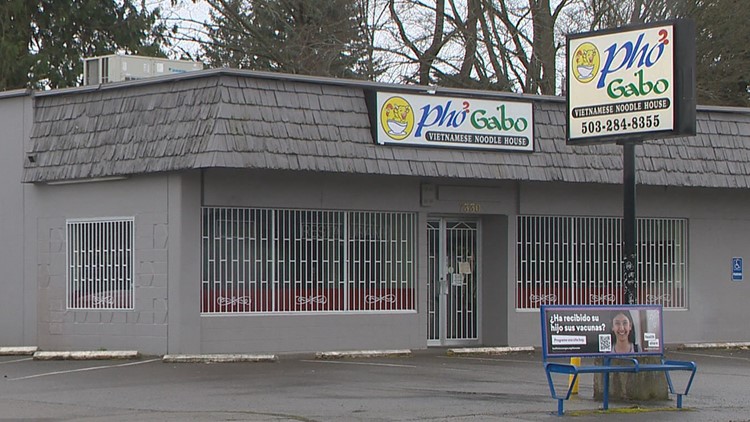PORTLAND, Ore. — After a Vietnamese restaurant was forced to close due to repeated odor complaints by one neighbor, the city of Portland has made some adjustments to the controversial code.
This week, the Portland City Council passed a proposal to adjust the city's odor ordinance, with the biggest difference being that restaurants will no longer be subject to odor code rules, starting in March.
Back in February, Phở Gabo in Northeast Portland was forced to close after fines started to rack up due to a nearby resident repeatedly complaining — anonymously — about the smell of cooking meat coming from the restaurant. The restaurant had been in business on Fremont Street and Northeast 74th Avenue for five years with no complaints.
A city inspector told Eddie Dong, the owner of Pho Gabo, that he could buy a new air filtration system for $40,000 but warned even that may not stop the complaints and fines. So instead of risking that kind of money, Dong closed up shop.
Dong told KGW at the time that he would be unlikely reopen a restaurant location in Northeast; Phở Gabo has two other locations in Happy Valley and in Hillsboro. He also planned to sue the city, citing "economic and noneconomic damages related to the City's subjective, selective and disproportionate enforcement of city codes."
The original code stated that "continuous, frequent or repetitive odors may not be produced" by restaurants.
Five Vietnamese-American state legislators called Portland's odor code "discriminatory" toward minority-owned small businesses. Odor complaints for Portland restaurants are rather rare, KGW found, with nearly half of the complaints turning out to be unfounded or unverifiable upon inspection.
City Commissioner Carmen Rubio put a pause on food establishment-specific odor complaints in the city, kickstarting the reform. The change in policy was supported by the Oregon Restaurant and Lodging Association (ORLA), saying it would "level the playing field and takes away that subjectivity that has been so damaging in the past."
New rules
Starting in March, retail and service businesses are no longer subjected to the odor codes.
The businesses that are still subject to the law will get 30 minutes of "continuous odor emissions" per day, instead of 15 minutes, as it is now.
If someone wants to complain, they have to live within 150 feet of the property line of the business causing the smells, and at least five individual complaints from five or more people have to be filed within a 30-day window before an investigation begins.
Meanwhile, the owner of the property, Scott Everist, stated though the space is for sale, he's had trouble finding a buyer due to the past fines, saying to the city council, “Minority restaurant buyers do not want to purchase a building that after HVAC improvements will not guarantee that they can still be a restaurant.”



